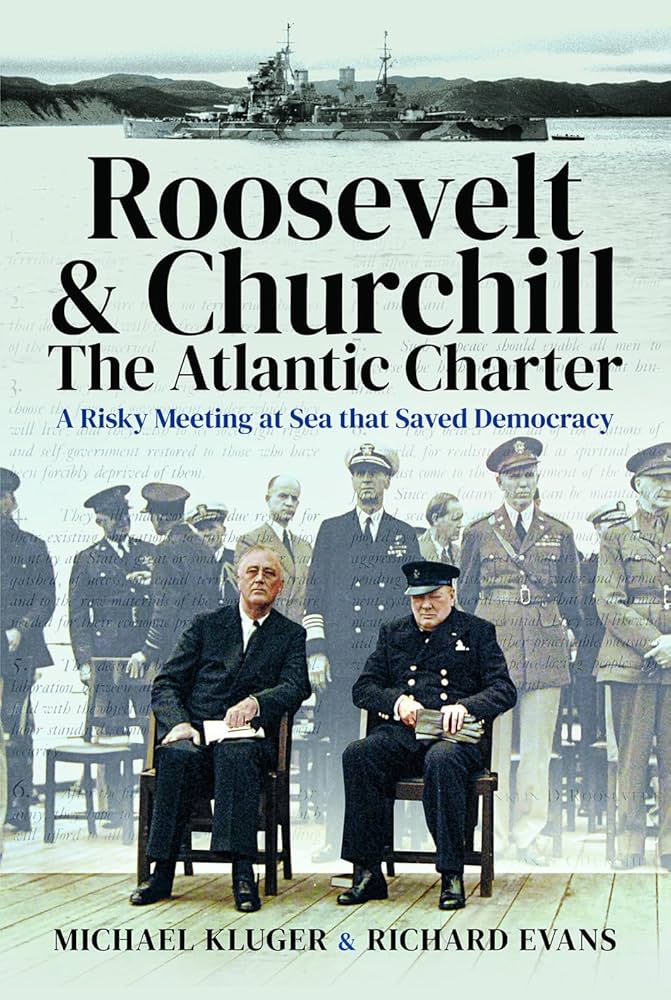The Atlantic Charter was never actually signed by Roosevelt and Churchill, but was later viewed by historians as a grand step toward the coming of the United Nations. The lineage of the document’s ideas ran back, via Wilson’s Fourteen Points, to 19th-century thought about the comity of nations and an international order. And when this greatest conflict in human history was over—to be followed shortly after by the rise of the Cold War—the permanent peacetime agreements that formed the NATO alliance (1949) could also be seen as the natural successor to the ideas and decisions that arose from Roosevelt and Churchill’s meeting.
It is not surprising, then, that whenever the cohesiveness and common purposes of the Western Alliance appears to be splintering, whenever America and Europe seem to be drifting apart in today’s world, the calls to halt that danger almost always begin by referring back to this historic 1941 encounter. A fine new Brookings Institution policy book by David McKean and Bart Szewczyk, “Partners of First Resort: America, Europe and the Future of the West,” is not a work of history, unless one thinks of it being what scholars at the Harvard Kennedy School call “Applied History.” The two authors are scholar-practitioners (both being former members of the Policy Planning Staff of the Department of State) and their account begins with the Atlantic Charter, the United Nation and NATO, then gallops forward swiftly to the coming of the Obama and Trump presidencies, both of which in their different ways (the latter especially) exposed irresolution and fissures in the Atlantic partnership.
This book can be seen as a liberal-internationalist act of special pleading, but it is no less interesting for being so. “Partners of First Resort” is quite good in describing the American-European differences of viewpoint in recent times, and on the dangers posed by Chinese authoritarianism—as well as by Vladimir Putin’s frequent efforts to undermine Western ideas and unity. The book concludes with a long chapter (“Toward a New Atlantic Charter”) that contains a serious and detailed agenda of all of the areas that any and all American policy makers, Republican or Democratic, now have to grapple with: climate change; cyber conflict; technological disruption; trade; public health. “Partners of First Resort” comes across, then, as a bold attempt to set out a grand strategy for the West, perhaps timed to catch the attention of President Biden and his team of advisers.
